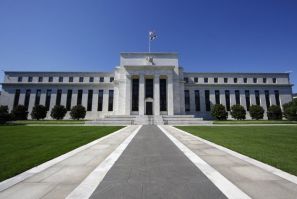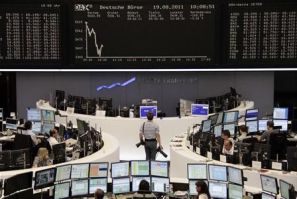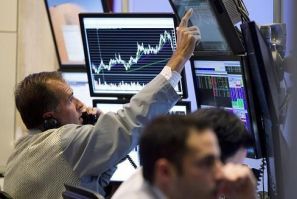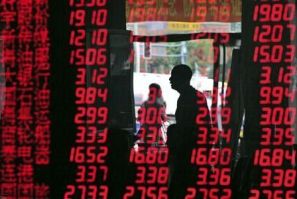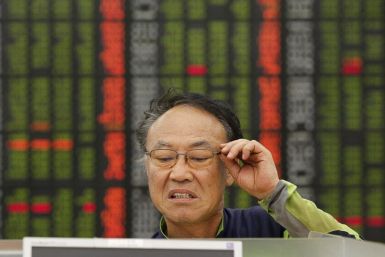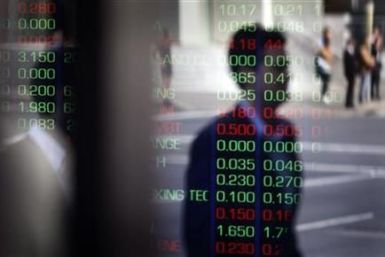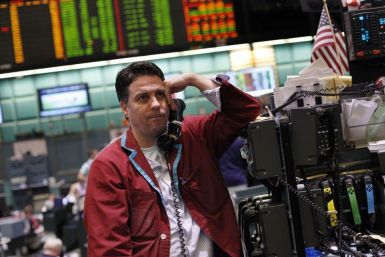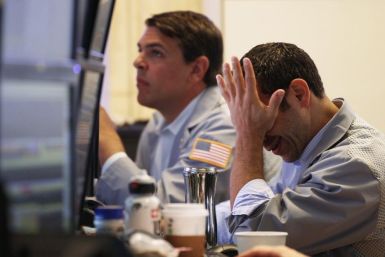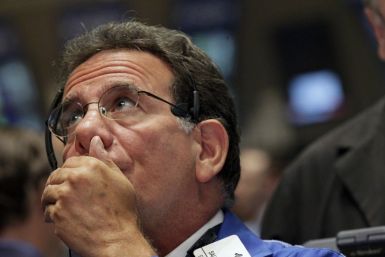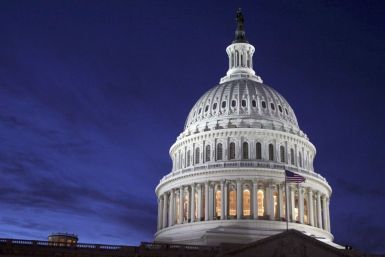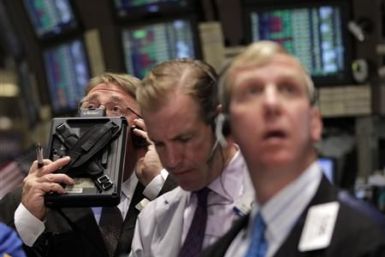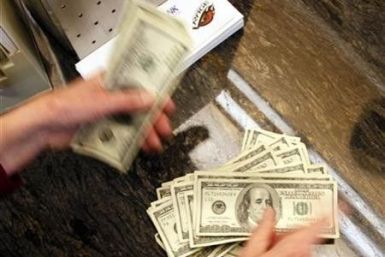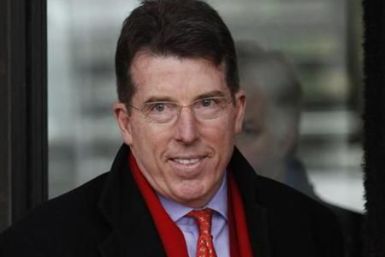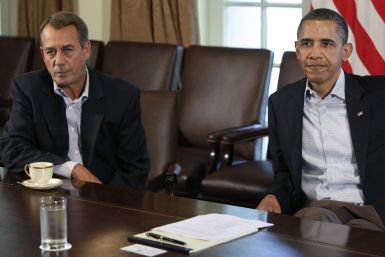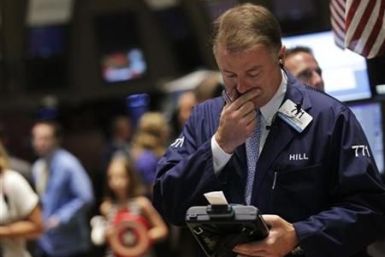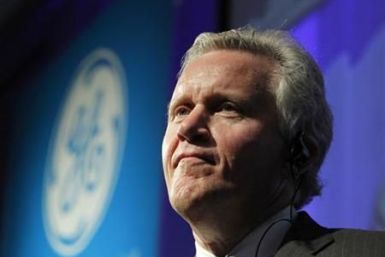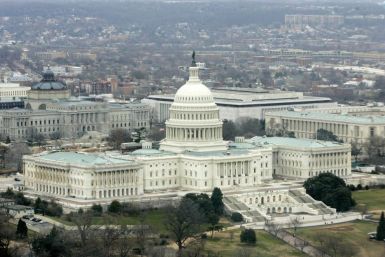Asian stocks extended losses Friday, with South Korea's benchmark shedding 5 percent on growing fears the U.S. economy was sliding into recession and as some European lenders faced short-term funding strains, raising fears of a systemic banking crisis on the continent.
Asian stocks tumbled as much as 4 percent on Friday on growing fears that the U.S. economy was sliding into recession and as some European lenders faced short-term funding strains, raising fears of a systemic banking crisis on the continent.
Commodities saw volatile movement last week, driven by intensifying talk of U.S. double-dip recession, spreading of sovereign crisis from the European periphery to core economies, speculations of U.S. Fed's easing measures, and supportive macro-economic data.
The S&P 500 index has not endured such a roller-coaster since in almost three years.
Gold, and only gold, will be our salvation when the value of companies, banks, countries and even money itself melts away. Gold, not shifting currencies, is the foundation of wealth and security. Gold is back, for good.
California's latest monthly revenue report shows revenue weaker than expected even before the stock market, a key source of revenue for the state, began sliding in response to Standard & Poor's downgrade of U.S. debt, anxiety about Europe's finances and the risk of the U.S. economy slipping back into recession.
Gold notched a new high on Monday as investors ran to the precious metal for safety amid collapsing stock markets.
Amidst the slaughter in equities, Treasuries rallied and gold soared to a new all-time high.
Asian shares fell on Monday and the dollar languished near a record low against the Swiss franc, as investors took fright at a downgrade of the U.S. credit rating, while gold powered to another record just short of $1,690 an ounce.
Tel Aviv shares closed nearly 7 percent lower on Sunday in the first response of a developed market to Standard & Poor's downgrade of the United States' credit rating that has sparked fears of another global recession.
Mohamed El-Erian has the best explanation of what happened in the markets yesterday. First and foremost, there were ?technical factors?. This doesn?t mean lines on charts and head-and-shoulders patterns and similar astrological nonsense, but rather the dynamics of where investors? money was being held and the amount that the market would fall given a modest downward nudge. Sometimes that number is tiny, but it can fluctuate a lot, and yesterday it just happened to be huge.
?The damage this week is more than last week ? translation, more damage from economic fears than debt fears.?
U.S. stocks plummeted Thursday, following a similarly huge sell-off in Europe, on growing fears that the global economy is sinking into a recession, ahead of worries about tomorrow?s July jobs report.
The world's largest economy was headed toward an unprecedented default, and all Washington wanted to talk about was the manner in which the president had left a room.
Over the last seven consecutive days, the index has plunged 6.76 percent.
Borrowing by small businesses jumped in June to the highest level in more than three years, a sign that a so-far elusive resurgence in economic growth may be around the corner.
he British-based bank may slash at least 1,400 more jobs in 2011, after already having eliminated another 1,400 positions this year
If the impasse over the U.S. debt limit isn't broken soon, President Barack Obama will be forced to decide how he will manage the crisis.
U.S. money managers sitting on piles of cash are sniffing out opportunities to make a killing on the political circus in Washington over raising the nation's debt ceiling.
Not for the first time, asset managers may be playing a high-risk game as they face the threat of a U.S. debt default without concrete contingency plans.
GE chairman and CEO Jeff Immelt had big shoes to fill in following Jack Welch as the company's leader. He's faced stiff challenges, but he's reshaping the company and starting to win.
A U.S. Government default must be avoided by Washington lawmakers at all costs, former U.S. Treasury Secretary Lawrence Summers underscored, as it would trigger a financial panic worse than that precipitated by the collapse of Lehman Brothers in late 2008.



